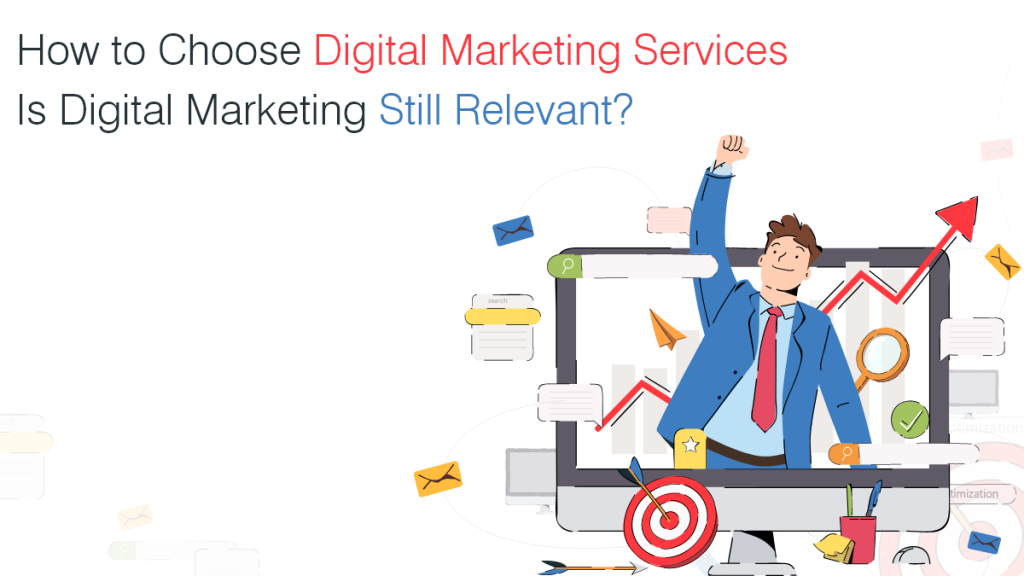Digital marketing is a powerful way to reach your customers. Before the rise of the internet, businesses relied on print, radio, and TV for marketing. These traditional methods have been replaced with digital channels, including websites, social media, search engines, and apps. These platforms provide two-way communication with customers and allow companies to measure their results.
To choose a digital marketing service provider, the first step is to define your business objectives. For example, are you looking for a new website? Or do you want to increase customer traffic to your site? Are you looking to build backlinks or track your sales? What are your goals in the short and long term? This information will help you find the right provider for your needs.
Digital marketing also provides small businesses with cost-effective solutions. These methods offer a high ROI with a small budget. For example, small businesses with limited funds might consider investing in social media, blogging, and SEO. These methods offer high ROI with minimal spending and help small businesses compete with bigger names. To maximize the potential of your small business, make sure you have a digital marketing strategy in place.
Social media is a great way to reach local customers. Many customers prefer to use businesses that are active on social media. Studies have shown that 70% of consumers are more likely to choose a business with social media. You should hire a social media consultant to increase your customer base and retain existing ones. These people are experts at using Facebook and Twitter ads, and can even help you with special promotions. They can also use email automation to reach and retain customers.
Digital marketing consultants lead your digital marketing efforts. Their expertise includes strategy, research, and development. Moreover, they can handle customer service issues. As a result, they must have a broad knowledge of digital marketing and be able to answer all your questions. You can also choose a digital marketing consultant based on your needs and the type of service you need.
Digital marketing is also more affordable than traditional methods. In addition to allowing smaller businesses to compete with bigger brands, digital marketing allows you to measure your success daily. It also helps you refine your marketing strategy to target specific subgroups within your target audience. And, it is easier to learn and adapt than traditional marketing.
Is Digital Marketing Still Relevant?
Is digital marketing still relevant? Yes, but in a different way. If you need more clarification, consider why digital marketing may be more relevant than ever. Firstly, it can increase brand awareness. It increases traffic to a website and builds trust with customers. It can also increase sales and leads. It’s worth remembering that digital marketing requires teamwork and consistency in messaging. It’s akin to using an electronic spreadsheet. It stores data in two-dimensional tables and displays the calculations’ results.
Another good reason to use digital marketing is that most people start their buying journey online, so you can reach your audience there. Social media, email marketing, and websites can all help you reach your target audience online. However, you should take the time to research which channels are most relevant to your business. Usually, your target market is online and will use social media and search engines to find what they’re looking for. Once you’ve identified what your ideal customers are looking for, you can use digital marketing to connect with them in a more effective way.
The importance of digital marketing cannot be overstated. Almost everything we do is connected to the internet. From selling online to creating awareness for products and services, it’s all happening through digital marketing. Many businesses have realized the importance of digital marketing and have adapted accordingly. There’s no better time to start investing in digital marketing than now. The opportunities are endless! Just remember to stay relevant, as the openness of the economy and global boundaries will only increase.
Traditional face-to-face networking strategies were still widely practiced before the Internet era began. Face-to-face contact was still preferred to the internet, and most sales and purchases were made at trade shows. Before the internet revolution, businesses relied on face-to-face networking strategies. Face-to-face interaction was essential for most purchases and supply partnerships, and few decision-makers used a computer or Google. In their minds, they didn’t fully understand how valuable it was until the internet revolution changed their lives.

